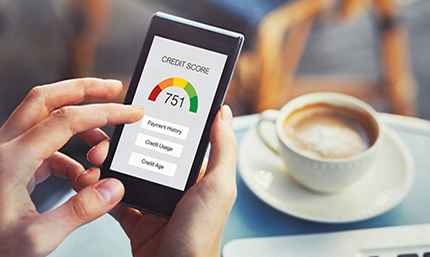News & Tips
How to Open a CD in Florida with Space Coast Credit Union

Opening a certificate of deposit (CD) offers oodles of benefits. The top one? The opportunity to earn even more money than with a savings account. Plus, insured CDs are safe and have a guaranteed rate of return.
Here, you’ll learn more about how CDs work, their benefits, and how to open a CD in Florida with Space Coast Credit Union (SCCU).
Certificate of Deposit: How It Works & Pros and Cons
To understand how a CD works, let’s compare it to a typical savings account.
Savings account: You deposit and withdraw money, as needed. Your earnings depend on the balance of your savings account and the interest rate.
CD: With a certificate of deposit, you’ll make a one-time deposit (at least the minimum amount) for a fixed term of your choosing. At SCCU, the terms range from three to 60 months.
- Pros: No matter which term you choose, the interest rates are almost always higher than what you can get with a savings account. Your initial deposit will earn money at that set interest rate for the entire term.
- Cons: Unlike a typical savings account, you can’t deposit more money during its term; if you withdraw the funds before the end of the term, a penalty may be assessed.
You’ll usually see an annual percentage yield (APY) next to the interest rate, this means that you’ll receive compound interest: interest on the balance as well as interest on the interest. When comparing CD interest rates among institutions, take a look at the APYs for an apples-to-apples comparison.
It’s a good idea to open a CD that’s federally insured. Although most are, some are privately insured. With banks, look for FDIC. With credit unions, look for NCUA (like at SCCU). Learn more how a certificate of deposit works here.
What To Do When the CD Term Ends
Here’s another key factor in how a CD works. Once the term ends, your CD has reached “maturity,” and you have some options on what you can do next.
- withdraw the funds (and, typically, put them in a savings or checking account)
- renew the CD for the same term—also known as “rolling the CD over”—at whatever the current interest rate is
- roll the funds into a CD with a different term under its current interest rate
As a savings strategy, you could choose to ladder your CDs.
How to Calculate Your CD Interest Earnings
To estimate how much you’ll earn on a CD during its term, try out our CD calculator: “Calculate Yield at Maturity.”
Enter your deposit amount, CD term, interest rate (not APY), and compounding frequency (which varies by financial institution).
For example, let’s say you deposit $2,500 for 12 months at 5.25% interest with quarterly compounding. According to the calculator, you’d earn $133.86!
If you’re trying to decide between a couple of CD options, try out the calculator called “Compare Two CDs.”
How to Open a CD
Let’s look at the steps of opening a CD.
1. Look at CD Interest Rates and Terms
First, look at the CD interest rates for each of the terms; also factor in what rates are expected to do.
Why Choose a Short-Term CD: If you’d like to make some fast cash and will need the money soon, consider a short-term CD (perhaps three or six months). Also, if experts predict that CD rates will go up relatively soon, you might want to select a shorter term to take advantage of the higher rates when your CD matures.
Why Choose a Long-Term CD: If there’s a prediction that CD rates will go down soon—and if you don’t think you’ll need to access the cash in the near future—then it’s a good idea to take action with a longer term. Most likely, you can earn more money by going the long-term term route.
| Term | Dividend Rate | APY^ | Min. Average Daily Balance to Earn APY^ |
|---|---|---|---|
| 3 Months | 3.94% | 4.00% | $500 |
| 6 Months | 4.01% | 4.05% | $500 |
| 9 Months | 4.04% | 4.10% | $500 |
| 12 Months | 4.18% | 4.25% | $500 |
| 18 Months | 4.04% | 4.10% | $500 |
| 24 Months | 3.70% | 3.75% | $500 |
| 30 Months | 3.50% | 3.55% | $500 |
| 36 Months | 3.50% | 3.55% | $500 |
| 42 Months | 3.55% | 3.60% | $500 |
| 48 Months | 3.60% | 3.65% | $500 |
| 54 Months | 3.65% | 3.70% | $500 |
| 60 Months | 3.70% | 3.75% | $500 |
^APY = Annual Percentage Yield.
CD Account rates are accurate as of the date indicated and are subject to change at any time. The minimum deposit required is $500 for all terms. The minimum average daily balance to earn APY (Annual Percentage Yield) is $500. The APY is based on the assumption that interest will remain in the CD Account until maturity. A penalty may be assessed for early withdrawal. Fees may reduce the earnings on the CD Account.
2. Decide on the Deposit Amount
Next, it’s time to decide how much money you can comfortably invest and for how long because you’ll want to avoid any penalties for early withdrawals. CDs aren’t exactly the right financial product for emergency savings that you might need for an unexpected repair or medical bill, but they’re a good avenue to help you save for future financial goals, such as a wedding, a trip, a down payment, etc.
The minimum deposit requirements will vary by financial institution, but it’s as little as $5006 at SCCU! Feel free to experiment with deposit amounts and terms with this calculator.
3. Apply for Your CD
With a deposit amount and CD term in mind, and if you live or work in any of these 34 counties in Florida or have a relative at SCCU, it's easy to apply for a CD online at SCCU! (Note, if you're not already a member of SCCU, a $5 deposit to a Share Savings account will establish your membership.)
What Determines CD Interest Rates?
The Federal Reserve—which is the central banking system of the United States—sets what’s called the “federal funds rate.” This is a targeted interest rate, and eight times a year, the Federal Reserve Board members meet to review and discuss the federal funds rate.
When they meet, they may decide to raise the rate, lower it, or keep it the same. They base their decisions on how they believe that this target interest rate will help keep economic conditions in the United States stable; as one example, this is how they manage inflation.
Financial institutions, like banks and credit unions, pay close attention to the federal funds rate, using it to independently set their own rates and terms. This is why financial institutions don’t offer the same rates across the board. In general, credit unions offer better certificate of deposit rates, lower loan rates, and so forth.
Opening a CD with a Credit Union in Florida
Credit unions are not-for-profit organizations that exist to serve their members. Unlike banks with the goal of earning profits for shareholders, members of a credit union pool their money for the greater good, and in return, can receive higher credit union CD interest rates.
As long as you live or work in these 34 counties or a relative is a member, you can become a member with a $5 deposit at SCCU. You can easily open a certificate of deposit online from application to funding at SCCU.
Looking for a Credit Union in Florida?
When you’re looking for a credit union in Florida, and want the best credit union certificate of deposit rates, we invite you to explore them at SCCU.
SCCU is federally insured by the National Credit Union Administration (NCUA) to protect its members. At an NCUA-insured institution, CDs are an excellent way to protect your initial investment—one of the safest investments available—while earning a fixed interest rate on your funds. SCCU is the third-largest credit union in Florida with over $9 billion in assets, serving over 650,000 members with 65 branches and Online Banking. Learn more about us here.
When you’re looking to open a certificate of deposit with a credit union in Florida, you’ve come to the right place with SCCU. We offer some of the best CD rates in Florida. Space Coast Credit Union also focuses on providing a high quality of customer service and delivering upon our promise: Honest People. Trusted Products. Time Valued.
Open Your Certificate of Deposit at SCCU
Apply online here for your credit union certificate of deposit and experience the Space Coast Credit Union customer service difference yourself along with some of the best CD rates in Florida. You can also get in touch with us if you have any questions or need assistance.





















































